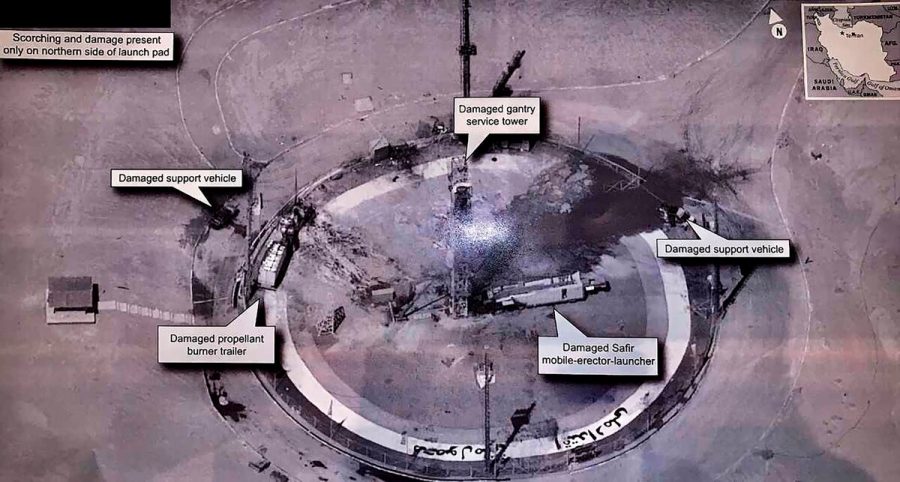Dictatorial regimes, like Iran, are not suicidal. Far from it. In fact, the Ayatollahs know that if the United States is provoked into a war, it will be their end. And this is why the United States should strike Iran to finish off the beast of terror lurking in the region.
Iran has been quite cautious in not provoking the US. Even as it confronts crippling sanctions. There is a good reason why it pegged the bombing of Saudi oil facilities on the Houthis of Yemen. The last thing Iran wants is a military confrontation with the U.S., and this is why we should not hesitate to dictate our own military terms to finish off the Ayatollahs for good.
So far, the Iranian Modus Operandi has been constructed around threatening the U.S. in the hope it strikes fear in the heart of our leadership, which, by all accounts, seems to have done a number on President Trump.
EFFECTIVE CYBER WARFARE
The last time Trump ordered action against Iran was back in June when their military shot down a U.S drone. Trump initially ordered a retaliatory military strike but then called it off in favor of a U.S. military cyber attack against Iranian military computer systems used by the IRGC to control rocket and missile launchers. Two months later, in August, an Iranian rocket mysteriously exploded on a launch pad.
If we remain on the defensive, we are only inviting Iran to go more on the offensive
Even post-Suxtnet, Iran remains incapable of protecting its military if the U.S. decides to cyber strike their networks. This, coupled with our superior military hardware, to include long-range stealth bombers and multiple military bases in the region, should provide the confidence to strike Iran. Once and for all to stabilize the region for good. If we remain on the defensive, we are only inviting Iran to go more on the offensive.
Gen. Joseph Dunford, chairman of the Joint Chiefs of Staff, told a number of journalists traveling with him:
In the Middle East, of course, we have military forces there and we do a lot of planning and we have a lot of options.
It is almost a certainty that these options include striking inside Iran to put a stop to the Iranian terror that has gone unchecked ever since they planned and executed, with the Assad regime, an attack on the U.S. Marines barracks in Lebanon in 1983. The result was the loss of 241 U.S. Servicemen.
IRANIAN TERROR SINCE 1983
Forward to the Iraq War and you will notice Iranian terror continue unabated. Iranian-backed militants caused, directly, the death of 603 U.S. Marines. If you add the al-Qaeda support the Iranians lent to Bin Laden, you might as well peg over 4,000 US soldiers dying, indirectly, at the hands of the Ayatollahs in Tehran. The barbaric Ayatollahs even admitted protecting and supporting Al-Qaeda before 9/11.
What would it take to squash the Mullahs in Iran? More U.S. Marines dying? More oil facilities bombed? More support for terrorists like Hezbollah, Hamas, and The Houthis in Yemen? There is only one reason why this region remains in permanent turmoil and that reason is Iranian terror and expansionism to control the region.
Consider this: President Obama pulled the plug on U.S. influence and the protection of our interests in the Middle East. Those actions led to Russian empowerment, which assisted Assad to gain the upper hand in Syria and the invasion of Crimea. Not to say anything about Russian interference in our electoral process.
If we neutralize Iran, we will be back in total control of the region. In effect dictating our wishes to the likes of Putin and Assad. The mountain becomes ours again and ours alone.
If we give Iran another pass, it won’t take long for another terror attack, another scare, and another weakening of our resolve.
Time to act against Iran.



COMMENTS